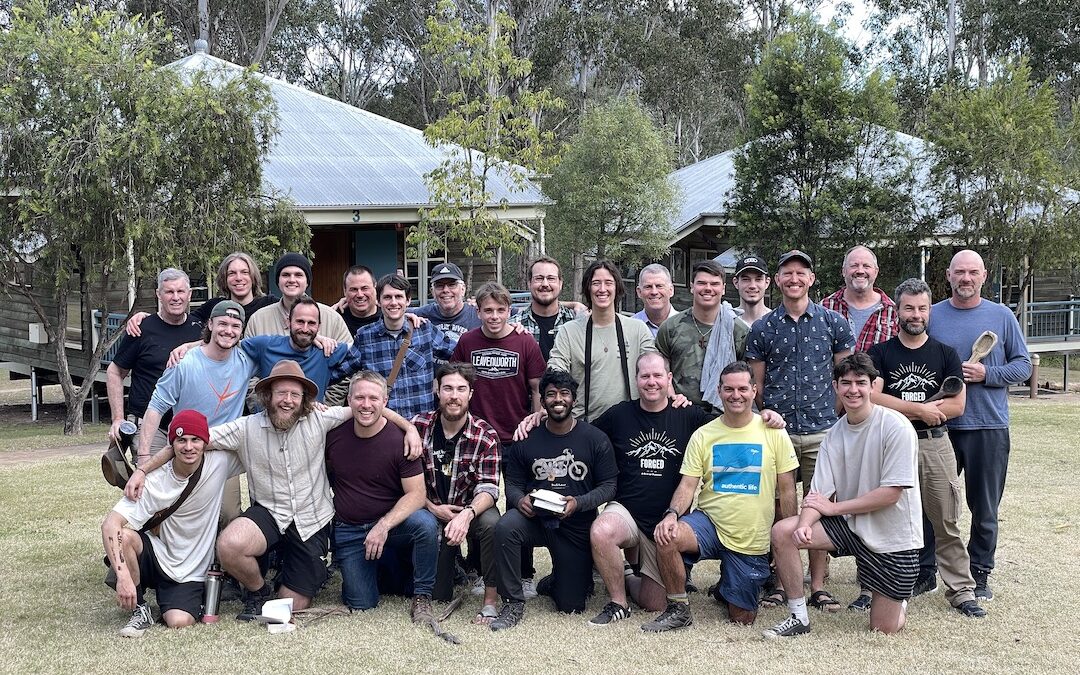We chat to CEO of the Centre for Men and Families, Dan Foster, about men’s mental health, fostering a more authentic masculinity and teaching the next generation.
Can you tell us a bit about your own background, and how you became involved with the Centre for Men and Families?
My background was in school teaching, and then in youth work, so I always had an interest in supporting people through difficult times. However, in my late thirties, I experienced my own burnout where I was the one in need of support. There are very few charities that focus specifically on men’s mental health and well-being, but a friend directed me to the Centre for Men and Families. There I received subsidized counselling and mental health support and was able to attend a number of programs that helped get me back on my feet. I was also shown a better way of coping with my own hurt and pain, so that I don’t project it onto those around me. It was life-changing.
So, I am involved in the work of CFMF because it’s made a difference in my own life, and I see the incredible value in it.
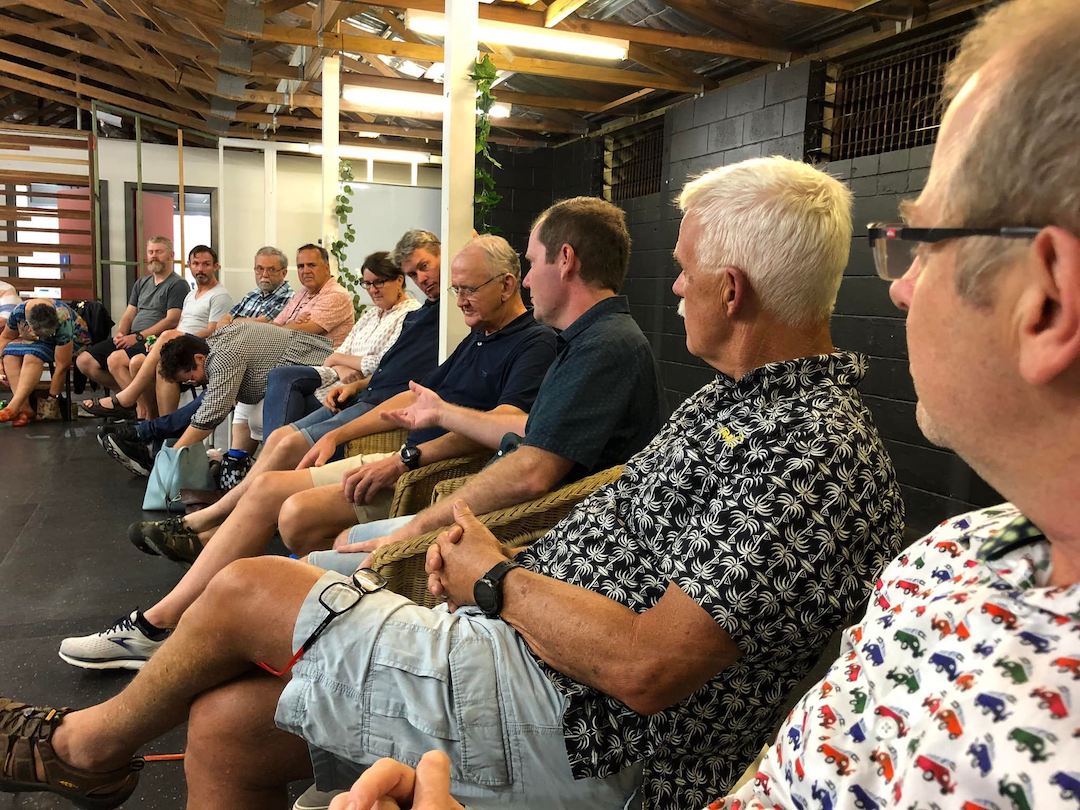
Image: Centre for Men and Families.
What is the main vision for the Centre for Men, and what support services do you offer?
Our dream is that every man in this country would have access to a group of mates that they can walk with shoulder to shoulder through life’s best and life’s worst. Our dream is that every man in this country would have a safe place where they can really talk about what’s going on, where they can share their story without the fear of judgment and find themselves heard and unconditionally loved. Our dream is that every man could experience the extraordinary strength that comes through being authentic about their weaknesses. Our dream is that every man in this country could be supported to recognise and embrace their hurts, disappointments, and limitations and find healing and wholeness. And our dream is that every man who finds healing and wholeness would pass on that generative wisdom to their families, society, and the next generation of males.
The Centre for Men and Families Australia is a non-for-profit harm prevention organisation that helps men break free from systems of power, addiction, shame and avoidance, so they can engage in mature, honest relationships with other men, with their families, and in their communities. The principal activity of CFMF is the prevention of behaviour that is harmful or abusive to human beings. Behaviour that is harmful or abusive means one or more of the following:
- emotional abuse
- sexual abuse
- physical abuse
- spiritual abuse
- suicide
- self-harm
- substance abuse
- harmful gambling.
We do this by providing a number of programs and services:
- Counselling services (including subsidized counselling for those of limited financial means)
- Hospital Alcohol and Drug Service (HADS)
- Rites of Passage: These are events that help men of all ages confront their pain, and find healing. Everyone man should do this in my opinion!!
- Online Workshops on topics that impact men and families
- Online resources
- Local mens support groups (known as men’s circles): Small groups that meet in local communities around the country, where a trained facilitator creates a safe space for men to talk about their real issues.
What specific challenges or barriers do men face when discussing mental health or seeking mental health resources?
There is still a stigma attached to mental health conditions – although it is not as bad as it once was. Men are still expected to be strong, stoic and invincible. This is a huge barrier for men to seek help.
I also think there are very few organisations that focus specifically on the unique needs of men. The more support we provide men, the better life becomes also for women and children.
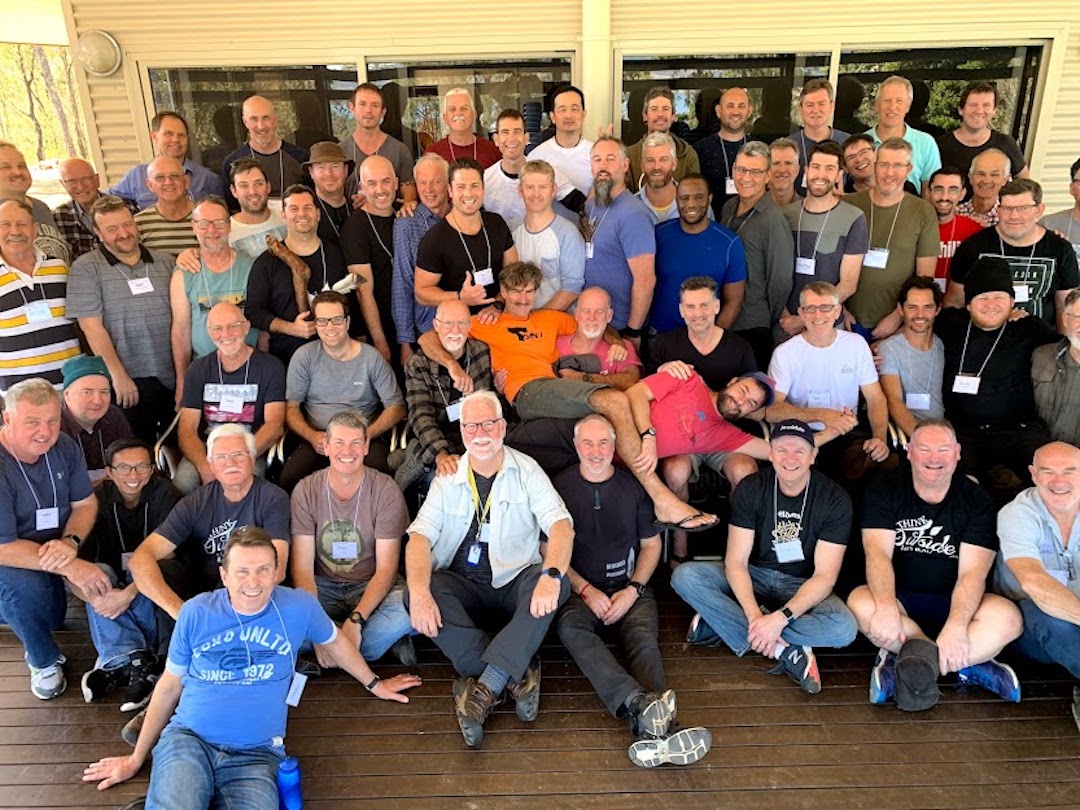
Image: Centre for Men and Families.
Do you think there is more awareness now around men’s mental health? What are some of the ways you work to raise awareness?
Awareness is definitely improving. It is helpful that a number of high profile men (Alistair Clarkson – coach of the North Melbourne Football Club comes to mind), who have been brave enough to publicly acknowledge their own mental health challenges, and to press pause on their lives to seek help. This helps raise awareness.
We work to raise awareness simply by storytelling. When brave men get really honest about their pain, it invites other men to step into the cave of their own wounds, and confront what they might find there.
There are a lot of stereotypes around masculinity and ‘being a man’ that negatively affect men. What does a more authentic masculinity look like?
A more authentic masculinity involves:
- Embracing emotions: Allowing men to express their feelings without judgment.
- A contemplative stance: Stepping back from ourselves, and examining our motives and the reasons we do what we do.
- Prioritising self-care: Valuing emotional, spiritual, physical and mental well-being.
- Breaking traditional roles: Supporting diverse interests and aspirations.
- Respecting diversity: Inclusive of different experiences and identities.
- Challenging harmful stereotypes: Rejecting toxic behaviors and discrimination.
- Supporting others: Listening to each other’s stories without judgement
Ultimately, it’s about breaking free from harmful stereotypes and embracing a positive, genuine, and respectful concept of masculinity.
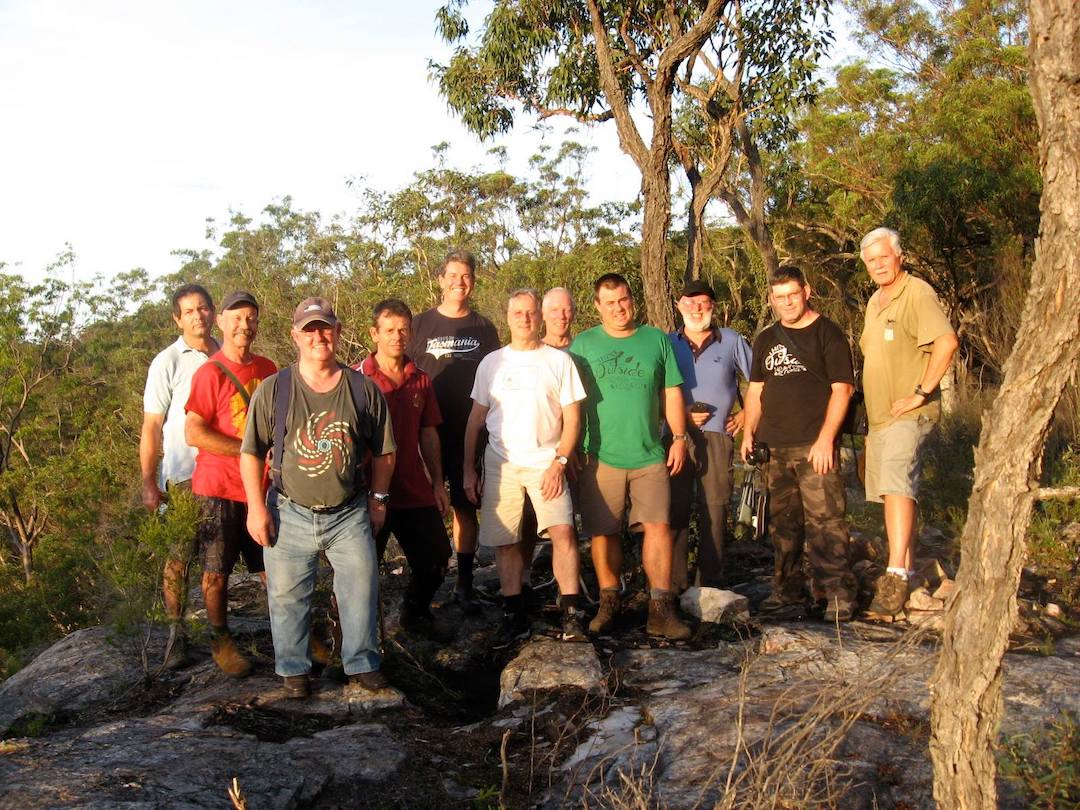
Image: Centre for Men and Families.
The FORGED experience focuses on young men aged 18-30. Can you talk us through what is involved in this experience, and how it particularly benefits younger men?
Forged is a rites of passage for Younger Men ages 18-30. Rites of Passage have largely been lost in our Western World, but we believe in their importance. Boys need to be shown what healthy masculinity looks like, or else they with create a version of their own, which is often a caricature. If we don’t provide rites of passage, boys will create their own (I think of the drinking culture on Schoolies as an example).
Forged is an event to help young men navigate the huge life choices and transitions that they are facing as they make decisions about their futures. It’s about providing a safe place for them to go deep and confront their fears and hurts. Each day of FORGED the young men are given the tools they need to navigate young manhood and beyond. And, they will be taught the hard lessons that they need to know to make it as a man.
Why do you think it is important to support and teach the next generation?
See above! If we don’t pass on generative wisdom to the next generation about what true masculinity looks like, they will create their own version – and often it’s toxic. We teach men that vulnerability is the key to growth, and the only way to deal with their wounds is to be brave enough to face them.
What are some positive first steps that men who may be struggling with their mental health can take to seek support?
The first step is admitting that you need help.
You cannot help anyone who cannot take this first step. Only when we come to the end our ourselves are we ready for the help that we need.
Secondly, men need to speak to someone they trust to let them know they are not coping (a partner, a friend, or a professional).
They can also reach out to organisations like CFMF who will walk with them through the journey.
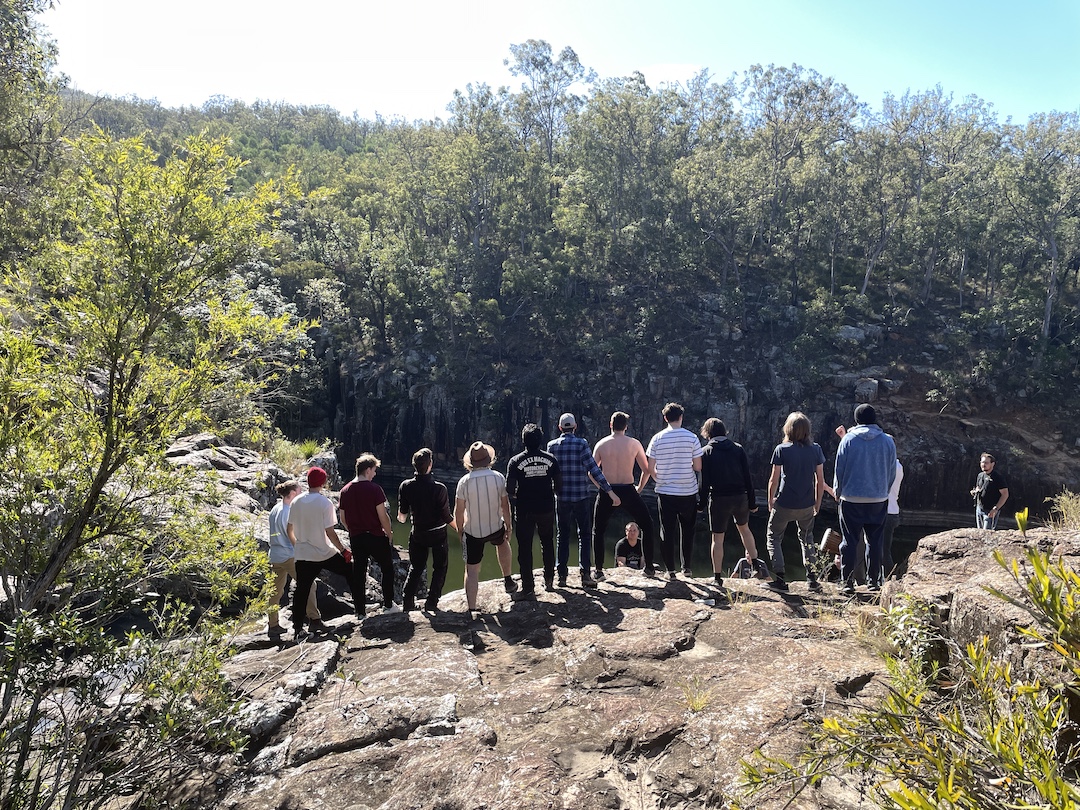
Image: Centre for Men and Families.
How can people reach out and offer better support to the men in our lives and communities?
So often when we ask someone how they are going, they reply, almost flippantly, “Good thanks,” or “Not too bad thanks, mate!”
Stop at this point and ask, “How are you really going?”
Men will express what’s really going on when they feel emotionally safe. Creating an emotionally safe place is the key. The way we do that is simple. When we are vulnerable, it invites vulnerability in others. When we are open, openness is the result in others. If we are brave enough to step into our wounds, others will be emboldened by our bravery, and step forward also. In reality, everyone wants to be known but many don’t find a safe space to share their story.
What’s next for the Centre for Men and Families?
We want to grow!
Men in Australia are in crisis, killing themselves and others at fair higher rates than what is acceptable, and experiencing a wide range of challenges mostly stemming from a lack of emotional literacy. This crisis is costing our nation in many measurable and immeasurable ways, personally, socially and financially.
Over the next five years, The Centre for Men and Families is aiming to create a safe space for every single man in this country to have their experiences heard and honoured; a space where they can talk – really talk – and their story is welcomed without judgment; a space where they are free to recognise and embrace their hurts, disappointments, and limitations; a space where they are supported to transform their woundedness and pain by drawing on the very best of contemporary knowledge and ancient wisdom; a space where they are shown how to handle both their power and pain so as to be safe; and, above all, a space where they can find a group of mates to belong to and be real with.
Enjoy reading about charities helping Australians? Check out our interview with Pam Barker, CEO of YFoundations.

